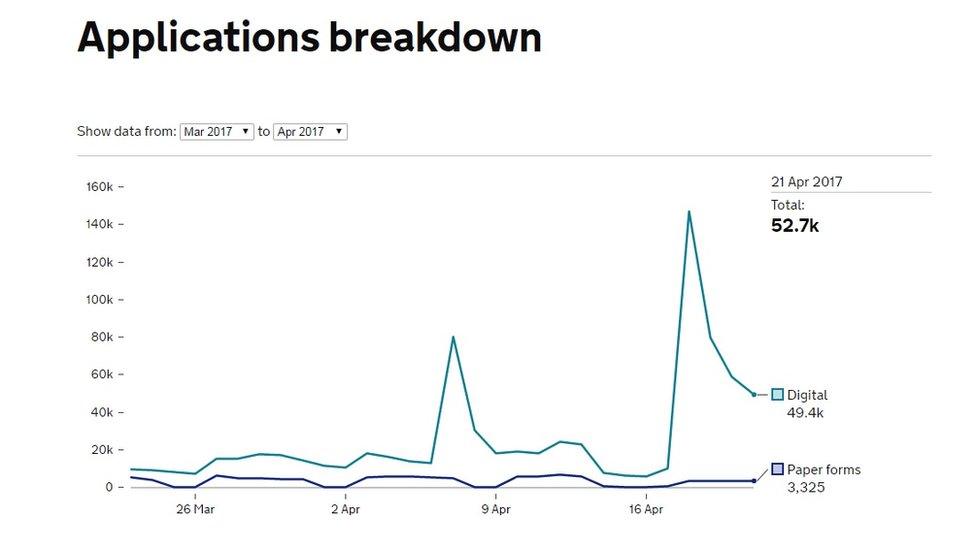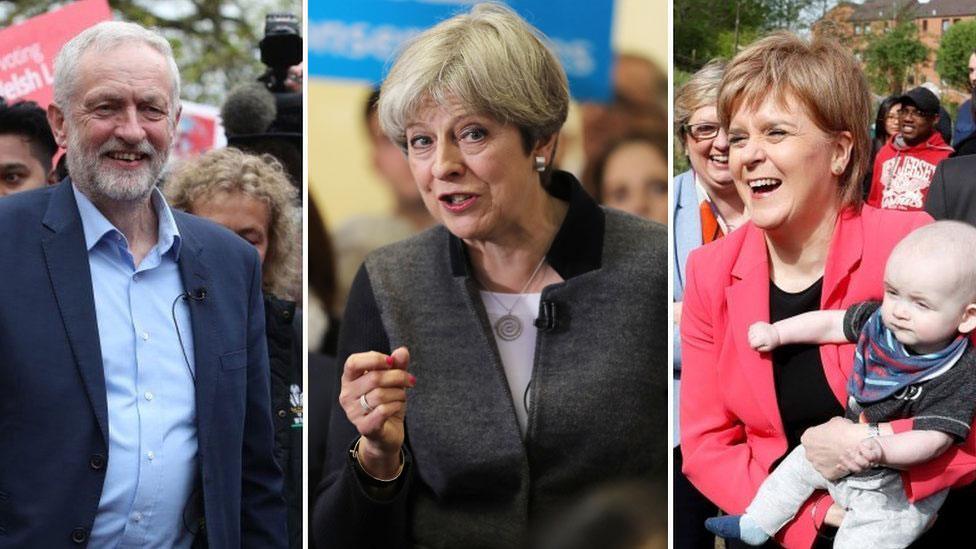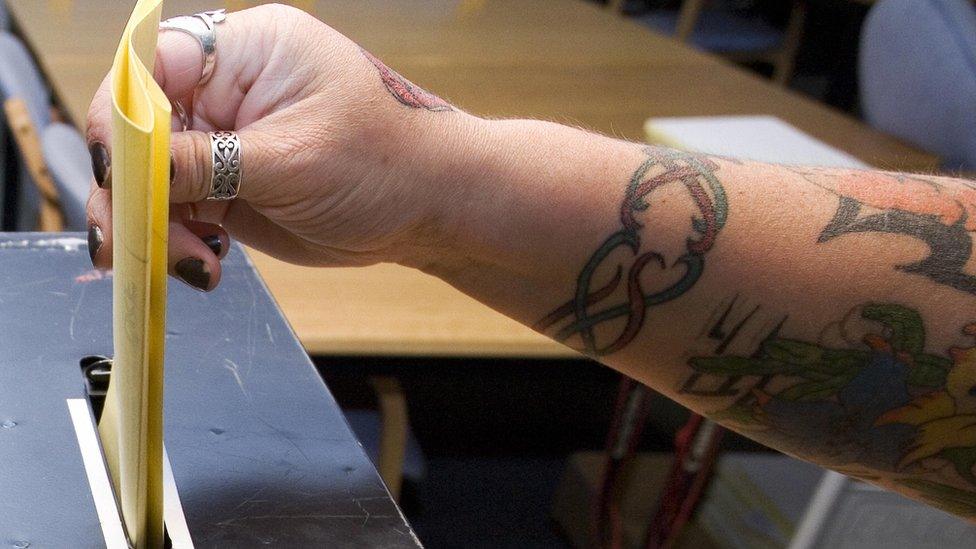General election 2017: How many people are registering to vote?
- Published
Don't get left outside on polling day - here's how to register to vote
More than two million people have applied to vote in the month since Theresa May announced she wanted to hold a snap general election on 8 June.
The highest number of registrations so far was on 18 April, the day Theresa May fired the election starting gun, when 147,000 people registered and 3,364 paper forms were submitted.
This was the biggest total recorded for a single day since the EU referendum campaign in 2016.
And the number of young people registering is the highest of any age group.
The deadline to register for the 2017 general election is 23.59 GMT on Monday 22 May.
Although numbers began to drop off a little after an initial flurry in mid-April, there are still significant numbers of voters making sure they can have their say at the ballot box.
In six out of the seven days up to 19 April, registrations exceeded 100,000 a day.

There had already been a steady stream of voters signing up ahead of the local elections being held on 4 May.
A spike in the numbers on 7 April, which saw 84,600 people register in one day, has been attributed to a Facebook reminder that went out to users across the UK.
The next highest day was 12 April, when 30,700 registered - a day before the registration deadline for the local elections.
But on 16 April, two days before the general election was announced and after the deadline had passed for the locals, the number was down to just 5,661.
After campaigning to get more people registered in time for the last general election in 2015 and the EU referendum in 2016, the Electoral Commission said the deadline to register was "a significant motivating factor", with a spokeswoman adding: "A large number of people apply to register in the days immediately before and on the deadline itself."
'Have your say'
The biggest group getting their applications in to vote during this surge is young people.
Rachael Farrington, university student and founder of Voting Counts, external - a campaign to encourage voters to register - said the general election was a chance for young people to have their say.
"I think it is so easy to fall into the habit of not voting," she said on her blog. "Many don't really see how politics affects them or their lives on a day to day basis.
"To this I'd say think about what you care about, is it the education of yourself or children, the local community spaces, healthcare, or jobs in your local community?
"Usually, whatever issue it is that you care about is influenced by politics in some way, so you should at least vote so that you have a say in making sure that issue is dealt with in a way you see fit."
On the day the general election was called, 57,987 people under 25 registered to vote - more than any other age group. The second largest group was people aged between 25 and 34, with a further 51,341 registering.
The number of new registrations declined the older people got:
19,321 people aged between 35 to 44 registered
10,224 people aged between 45 and 54 registered
6,410 people aged between 55 and 64 registered
3,676 people aged between 65 and 74 registered
1,215 people aged over 75 registered
The previous Facebook-related spike on 7 April actually saw the 25-to-34 group with the most registrations - 31,211 people - but this was followed in second by the under-25s, with 22,138 registrations.
Just 3,175 people 65 or over registered on that day.
Emma Hartley, head of campaigns at the Electoral Commission, said: "It's really encouraging that so many young people have registered to vote recently, as our research shows that along with students and recent home movers, they are particularly less likely to be registered."
But with another month until voter registration closes, there is more to be done to get people to their polling stations on 8 June.
Mariam Inayat Waseem, trustee and director of the British Youth Council and a student at Newcastle University, said: "You only have to go onto social media to see how politically engaged young people are, but they are not involved in traditional ways.
"Young people feel disillusioned. Decisions about their futures are being made by people without them being part of the conversation.
"These decisions being taken by politicians are going to affect us, the young people, way more than they will those people who are implementing them, so we need to go out and vote and make our voices heard."
- Published22 April 2017

- Published2 June 2017

- Published20 April 2017